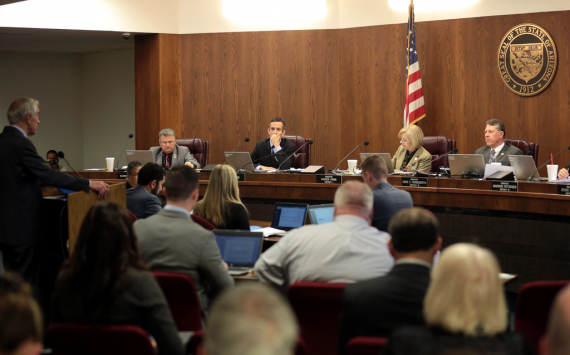
The Capitol's Hidden Agendas
Congressman Brian Higgins resigned in November due to frustration with Washington's slow pace. He will officially leave in February to become the director at Shea’s Performing Arts Center in Buffalo, addressing pending cases and facilitating a smooth transition during the interim period.
According to Theresa Kennedy, Higgins' communications director, the window before his departure allows for essential communication with constituents and the completion of outstanding legislative matters. However, Higgins is not alone in this approach, as other members of the House, such as Ohio Republican Bill Johnson, have chosen to delay their departure after accepting new positions.
Postponing resignation can stem from motives like maximizing pensions or maintaining additional paychecks, as well as fulfilling commitments and completing projects. However, watchdogs like Meredith McGehee and Craig Holman raise ethical concerns when public representatives simultaneously benefit from private sector employment.
Holman, a government affairs lobbyist at Public Citizen, emphasizes the inherent conflicts of interest when members wear both public service and private employment hats. He argues that ethical issues arise when lawmakers, aware of their future employment, continue to make decisions that could impact their private employers.
The Honest Leadership and Open Government Act, a response to lobbying and ethics scandals, imposes limits on job negotiations for lawmakers in both chambers. It mandates disclosure to Ethics Committees, yet Craig Holman's research indicates limited public awareness of these negotiations, prompting transparency concerns.
Holman's findings reveal a significant gap between the number of retirements, resignations, or losses and the disclosures filed between 2007 and 2016. Despite the legislative framework in place, the House Ethics Committee seems to fall short in ensuring adequate disclosure.
As of December 19, the Legislative Resource Center has not made disclosures from Higgins and Johnson publicly available. This lack of transparency raises questions about the effectiveness of current regulations and oversight.








